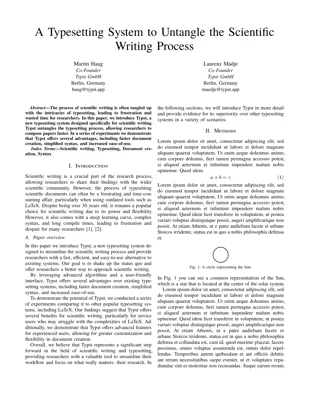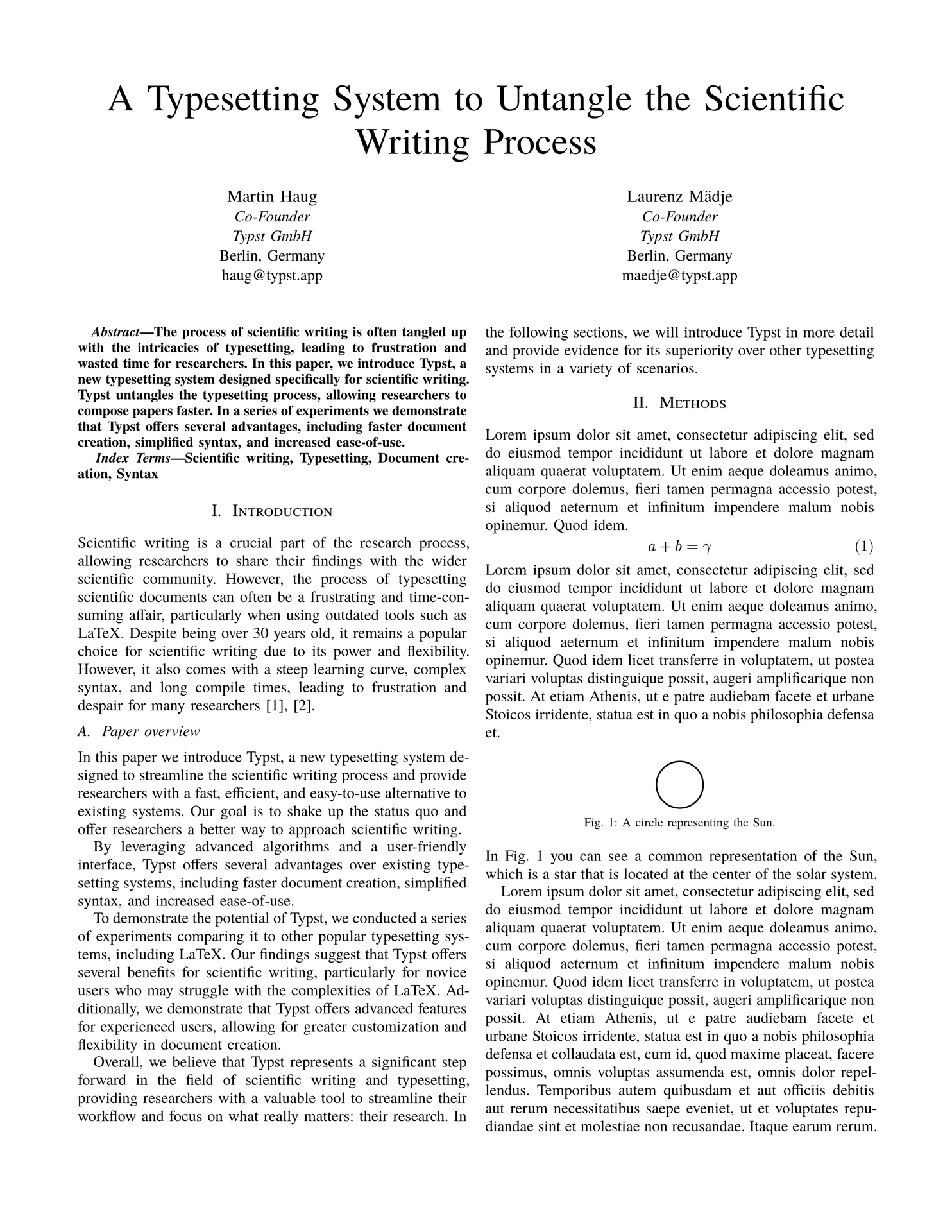This is a Typst template for a two-column paper from the proceedings of the Institute of Electrical and Electronics Engineers. The paper is tightly spaced, fits a lot of content and comes preconfigured for numeric citations from BibLaTeX or Hayagriva files.
Usage
You can use this template in the Typst web app by clicking “Start from template”
on the dashboard and searching for charged-ieee.
Alternatively, you can use the CLI to kick this project off using the command
typst init @preview/charged-ieee
Typst will create a new directory with all the files needed to get you started.
Configuration
This template exports the ieee function with the following named arguments:
title: The paper’s title as content.authors: An array of author dictionaries. Each of the author dictionaries must have anamekey and can have the keysdepartment,organization,location, andemail. All keys accept content.abstract: The content of a brief summary of the paper ornone. Appears at the top of the first column in boldface.index-terms: Array of index terms to display after the abstract. Shall becontent.paper-size: Defaults tous-letter. Specify a paper size string to change the page format.bibliography: The result of a call to thebibliographyfunction ornone. Specifying this will configure numeric, IEEE-style citations.
The function also accepts a single, positional argument for the body of the paper.
The template will initialize your package with a sample call to the ieee
function in a show rule. If you want to change an existing project to use this
template, you can add a show rule like this at the top of your file:
#import "@preview/charged-ieee:0.1.3": ieee
#show: ieee.with(
title: [A typesetting system to untangle the scientific writing process],
abstract: [
The process of scientific writing is often tangled up with the intricacies of typesetting, leading to frustration and wasted time for researchers. In this paper, we introduce Typst, a new typesetting system designed specifically for scientific writing. Typst untangles the typesetting process, allowing researchers to compose papers faster. In a series of experiments we demonstrate that Typst offers several advantages, including faster document creation, simplified syntax, and increased ease-of-use.
],
authors: (
(
name: "Martin Haug",
department: [Co-Founder],
organization: [Typst GmbH],
location: [Berlin, Germany],
email: "haug@typst.app"
),
(
name: "Laurenz Mädje",
department: [Co-Founder],
organization: [Typst GmbH],
location: [Berlin, Germany],
email: "maedje@typst.app"
),
),
index-terms: ("Scientific writing", "Typesetting", "Document creation", "Syntax"),
bibliography: bibliography("refs.bib"),
)
// Your content goes below.

